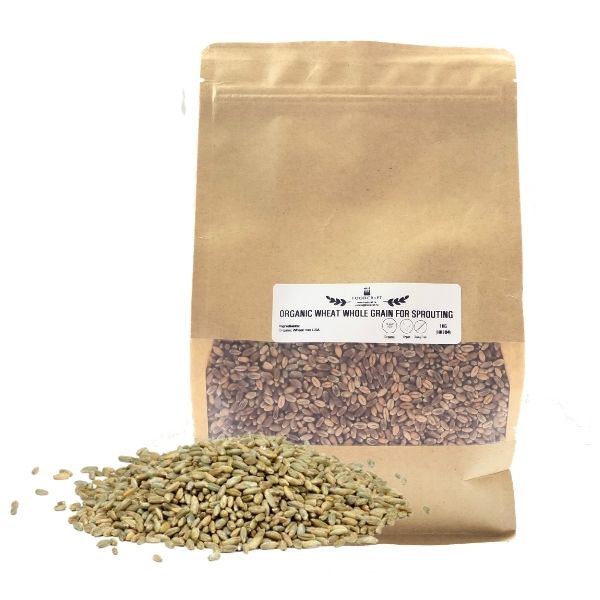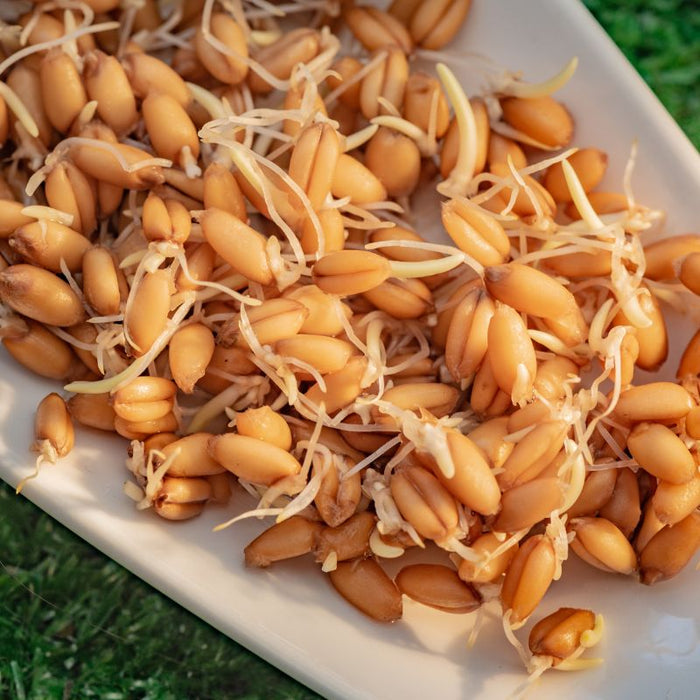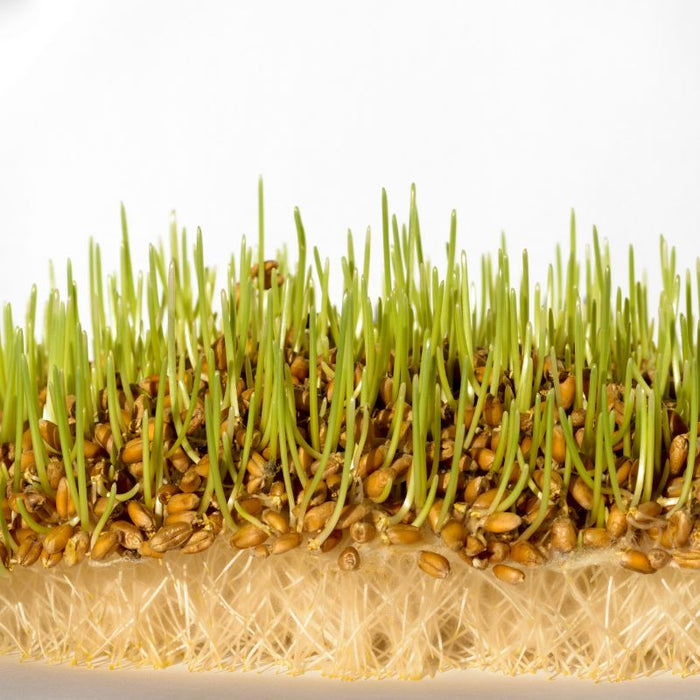
Organic Wheat Berries for Sprouting (Whole Grain) - 1kg
What are Wheat Berries
Wheat berries are whole wheat kernels. They look like thick, short grains -- similar to brown rice. Industrious folks grind them into whole wheat flour for baking; you may not have the time to regularly grind your own flour, but it’s a fun thing to try at least once.
When boiled, cooked wheat berries have a chewy bite and subtle nutty, earthy flavor. They’re sturdy enough to handle bold salad dressings and still delicate enough to taste delicious with some milk, honey and cinnamon.
If you like sprouts on salads and sandwiches, add a little water to wheat berries and you can grow your own wheat sprouts.
Benefits of Eating Whole Grains
Whole grains have been a part of the human diet for tens of thousands of years.
But proponents of many modern diets, such as the paleo diet, claim that eating grains is bad for your health.
While a high intake of refined grains is linked to health problems like obesity and inflammation, whole grains are a different story.
In fact, eating whole grains is associated with various benefits, including a lower risk of diabetes, heart disease, and high blood pressure.
Health Benefits of Sprouted Wheat
Grains are the seeds of grass-like plants called cereals. Some of the most common varieties are corn, rice, and wheat.
Some seeds of non-grass plants, or pseudocereals, are also considered whole grains, including buckwheat, quinoa, and amaranth.
Whole-grain kernels have three parts (2Trusted Source):
Bran. This is the hard, outer shell. It contains fiber, minerals, and antioxidants.
Endosperm. The middle layer of the grain is mostly made up of carbs.
Germ. This inner layer has vitamins, minerals, protein, and plant compounds.
Grains can be rolled, crushed, or cracked. Nonetheless, as long as these three parts are present in their original proportion, they’re considered whole grains.
Refined grains have had the germ and bran removed, leaving only the endosperm.
Source: https://www.healthline.com/nutrition/9-benefits-of-whole-grains
Though enriched refined grains have had some vitamins and minerals added back, they’re still not as healthy or nutritious as the whole versions.
How to Sprout Wheat Berries
- Rinse ½ cup wheat berries and remove any debris or stones.
- Place wheat berries in a quart-size sprouting jar or other sprouting container.
- Fill with water, cover with a sprouting screen or mesh sprouting lid. Soak at least 6 hours or overnight.
- Drain all water off the wheat berries.
- Invert the jar over a bowl at an angle so that the wheat berries will drain and still allow air to circulate.
- After 8-12 hours of draining, rinse and drain again.
- Repeat rinsing and draining 2-3 times daily.
- Tiny sprouts should begin to form in 2-3 days. At this point, sprouting is complete. Drain well before use or storage.
How to use Sprouted Wheat Berries
- Add to salads, soups, bread, and other recipes.
- Ferment sprouted wheat berries to make Rejuvelac.
- Transfer to soil and grow wheat grass for making wheat grass juice.
- Dehydrate and grind into flour for sourdough baking.
- Make sprouted breakfast cereal or porridge.
Source: https://www.culturesforhealth.com/
How to Prepare Wheat Berries
Mushroom Wheat Berry Pilaf
Ina Garten's Wheat Berry Salad
Ellie Krieger's Wheat Berry Salad
Wheat Berry Nutrition
The wheat berries nutrition profile is high in fiber, manganese and selenium, along with a host of other important vitamins and minerals.
A quarter-cup serving of wheat berries contains approximately: (15)
158 calories
33 grams carbohydrates
7 grams protein
1 gram fat
6 grams dietary fiber
2 milligrams manganese (97 percent DV)
34 micrograms selenium (49 percent DV)
0.25 milligram thiamine (16 percent DV)
159 milligrams phosphorus (16 percent DV)
60 milligrams magnesium (15 percent DV)
2.8 milligrams niacin (14 percent DV)
0.2 milligram copper (10 percent DV)
1.7 milligrams iron (10 percent DV)
1.3 milligrams zinc (9 percent DV)
0.2 milligram vitamin B6 (8 percent DV)
21 milligrams folate (5 percent DV)
In addition to the nutrients listed above, wheat berry also contains a small amount of potassium, pantothenic acid and vitamin E.
source: https://draxe.com/nutrition/wheat-berries/
Country of Origin : USA











